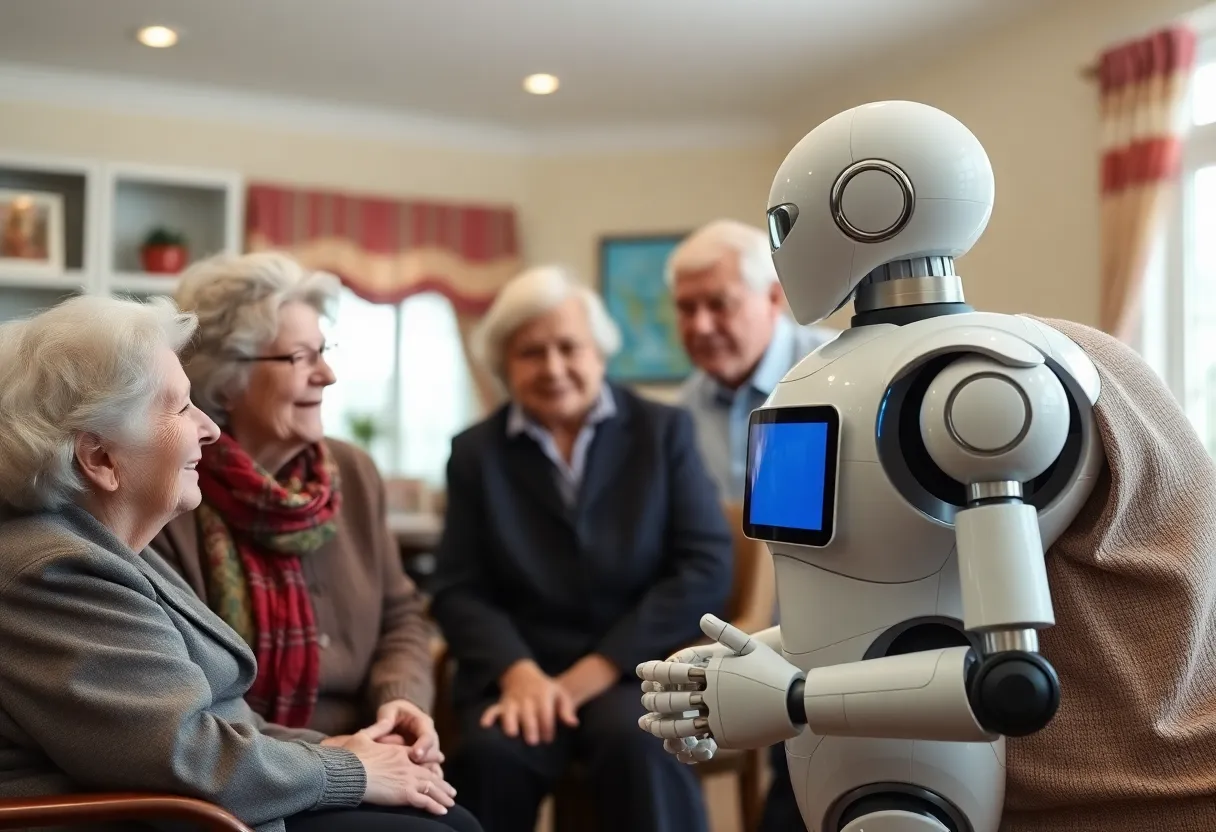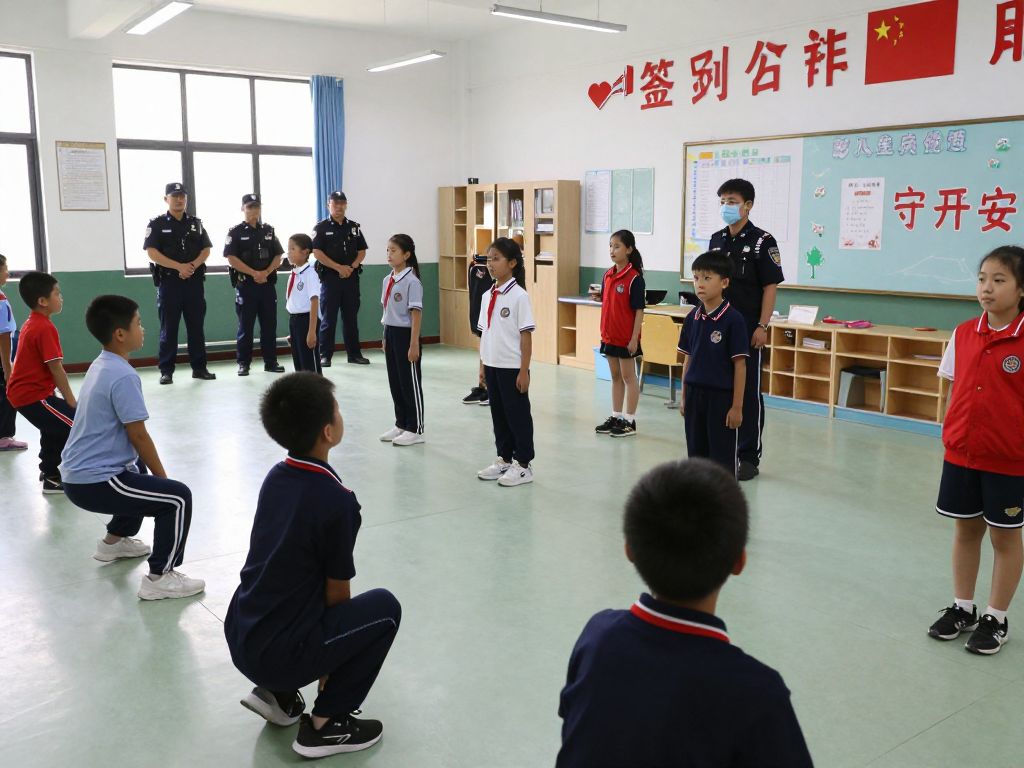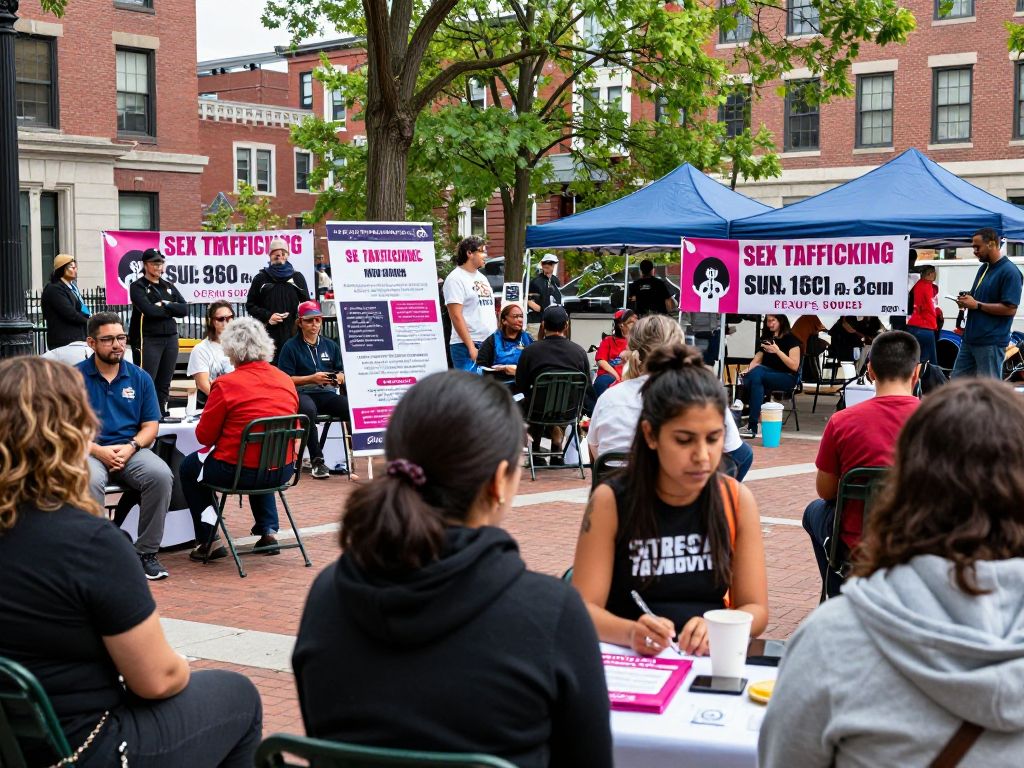Wingate Living, Needham, September 10, 2025
News Summary
A humanoid robot named Abbi is currently being used at Wingate Living in Needham to engage in conversations with residents suffering from dementia. Developed by Worcester Polytechnic Institute, Abbi aims to ease feelings of loneliness among residents when human caregivers are unavailable. The robot’s interactive features have garnered positive responses from residents, although some technical issues remain. Planned upgrades will enhance usability and performance, addressing the increasing social isolation in elder care environments.
Needham — A small humanoid robot named Abbi is being used at the Wingate Living assisted living facility to hold conversations with residents who have dementia, providing companionship and easing loneliness when staff are unavailable.
What happened
Abbi, an artificial intelligence-powered conversational robot built on a SoftBank humanoid platform, is being trialed in the memory care unit at Wingate Living in Needham. The robot’s dialogue software was developed by Worcester Polytechnic Institute professor Fiona Yuan and her students. About half of the roughly two dozen residents in the unit have signed up to converse with Abbi. Facility leadership made clear that the robot is intended as a supplement for companionship, not a replacement for human caregivers.
Key details and resident experience
Interactions have been positive overall: residents engaged with Abbi and responded to its expressive features such as head tilting, eye movement, and gesturing. One resident described the interaction as very pleasant and joked that it compared favorably to family conversation. Family members noted, however, that some of Abbi’s current hardware and software limitations affected usability. Issues reported during early use include occasional software glitches, speech delays caused by AI processing on a remote server, and difficulty operating the robot’s small touch screen.
Planned improvements
Worcester Polytechnic Institute students and faculty working on the project have outlined near-term hardware upgrades that will include a larger touch screen and improved microphones to make conversations clearer and easier to manage. The team also plans to shift more of the AI processing onto the robot itself in future versions to reduce latency and enable smoother, more natural conversations.
Role in care and staffing context
Staff at the Wingate Living memory care unit emphasize that Abbi is a tool to provide companionship during times when human staff are not available, such as late-night hours. The initiative responds to broader challenges in long-term care: a rapidly aging population and a shortage of caregivers that limits the time staff can spend on one-on-one social interaction.
Local and state health context
Demographic and health data for Massachusetts highlight the scale of need: 13% of the state’s 1.2 million residents aged 65 and older have dementia, 28% have diabetes, and more than one-third experience depression. Workforce shortages are significant: roughly 25% of positions across home health care roles, including direct care workers, registered nurses, and social workers, are currently unfilled.
Technology and funding landscape
The Abbi pilot is part of a wider effort to develop technology for aging populations. Despite discussion for more than a decade about creating a regional hub for age-focused technology, many startups in this space have struggled to attract large amounts of venture capital. In the most recent quarter, Massachusetts startups raised $2.6 billion, the lowest quarterly total since 2017. Economic pressures have contributed to reduced early-stage funding for elder tech. Some companies have succeeded in raising significant capital, though they often target adjacent markets such as online mental health and wearable devices rather than only seniors.
Examples in the wider tech-for-aging space include a senior-monitoring company with about 4,500 users that has faced growth challenges amid a slowdown in early-stage venture funding, and a Boston-area firm that developed a cooling wristband for menopausal hot flashes and has secured $66 million in investment. Research linked to that wristband’s development showed that hot flashes could be predicted about 17 seconds in advance with 82% accuracy in a peer-reviewed study; the company is working on AI features that could allow the device to act proactively.
What this means for families and care providers
The Abbi project illustrates a practical approach to using robotics and AI to add social interaction options in memory care settings, but it also underscores the importance of simple interfaces and reliable performance for older adults with cognitive impairment. Ongoing hardware and software changes aim to make the robot easier to use and more responsive. Facility staff see robotic companions as an adjunct to human care that can help reduce loneliness and provide a consistent source of conversation when direct staff time is limited.
Frequently Asked Questions
What is Abbi and how is it used at Wingate Living?
Abbi is an AI-powered conversational robot built on a SoftBank humanoid platform. It is used in the memory care unit to provide companionship and conversational engagement for residents with dementia, especially when staff are not available for one-on-one interaction.
Who developed Abbi’s software?
The conversational software was developed by a team led by a professor at Worcester Polytechnic Institute and students at the university.
Are there plans to improve the robot?
Yes. Planned upgrades include a larger touch screen, improved microphones, and moving more AI processing onto the robot to reduce delays and improve the flow of conversation.
Is Abbi intended to replace human caregivers?
No. Facility leadership has stated that the robot is intended to supplement human care by offering companionship during times when staff are unavailable, not to replace caregiving staff.
How many residents are participating?
About half of the roughly two dozen residents in the memory care unit have signed up to use Abbi.
Why are technologies like Abbi being developed?
Technologies like Abbi are being developed to help address social isolation, support cognitive engagement for people with dementia, and respond to staffing shortages in elder care as the population ages.
Quick Reference Table
| Topic | Details |
|---|---|
| Location | Wingate Living memory care unit, Needham |
| Robot | Abbi — SoftBank humanoid base with AI conversational software |
| Developers | Worcester Polytechnic Institute professor and students |
| Resident participation | About half of roughly two dozen residents signed up |
| Current issues | Software glitches, small touch screen, delayed responses due to remote server processing |
| Planned upgrades | Larger touch screen, improved microphones, on-device AI processing |
| Care role | Companionship and supplemental conversation; not a replacement for staff |
| State health context | 13% of residents 65+ have dementia; 28% have diabetes; over one-third have depression; ~25% of home health positions unfilled |
| Funding landscape | Massachusetts startups raised $2.6 billion in the most recent quarter (lowest since 2017); elder-tech funding has tightened |
Deeper Dive: News & Info About This Topic
HERE Resources
Kinisi Robotics CEO Discusses Warehouse Automation Challenges
Boston Council Debates Impact of Autonomous Vehicles
Amazon to Launch Humanoid Park for Delivery Robot Testing
OpenAI Acquires Jony Ive’s io Products in $6.5 Billion Deal
Tesla’s Recent Struggles: A Major Setback for the Car Giant
Tesla’s Market Value Plummets by 49%
Additional Resources
- Boston Globe: Innovation Beat – Age of Tech Startups
- Wikipedia: Artificial Intelligence
- MSN: Who is Brenden Needham?
- Google Search: Elder Tech Startups
- Encyclopedia Britannica: Dementia

Author: STAFF HERE BOSTON WRITER
The BOSTON STAFF WRITER represents the experienced team at HEREBoston.com, your go-to source for actionable local news and information in Boston, Suffolk County, and beyond. Specializing in "news you can use," we cover essential topics like product reviews for personal and business needs, local business directories, politics, real estate trends, neighborhood insights, and state news affecting the area—with deep expertise drawn from years of dedicated reporting and strong community input, including local press releases and business updates. We deliver top reporting on high-value events such as Boston Marathon, Head of the Charles Regatta, and Boston Harborfest. Our coverage extends to key organizations like the Greater Boston Chamber of Commerce and Associated Industries of Massachusetts, plus leading businesses in finance, biotech, and insurance that power the local economy such as Fidelity Investments, Biogen, and Liberty Mutual Insurance. As part of the broader HERE network, we provide comprehensive, credible insights into Massachusetts's dynamic landscape.





